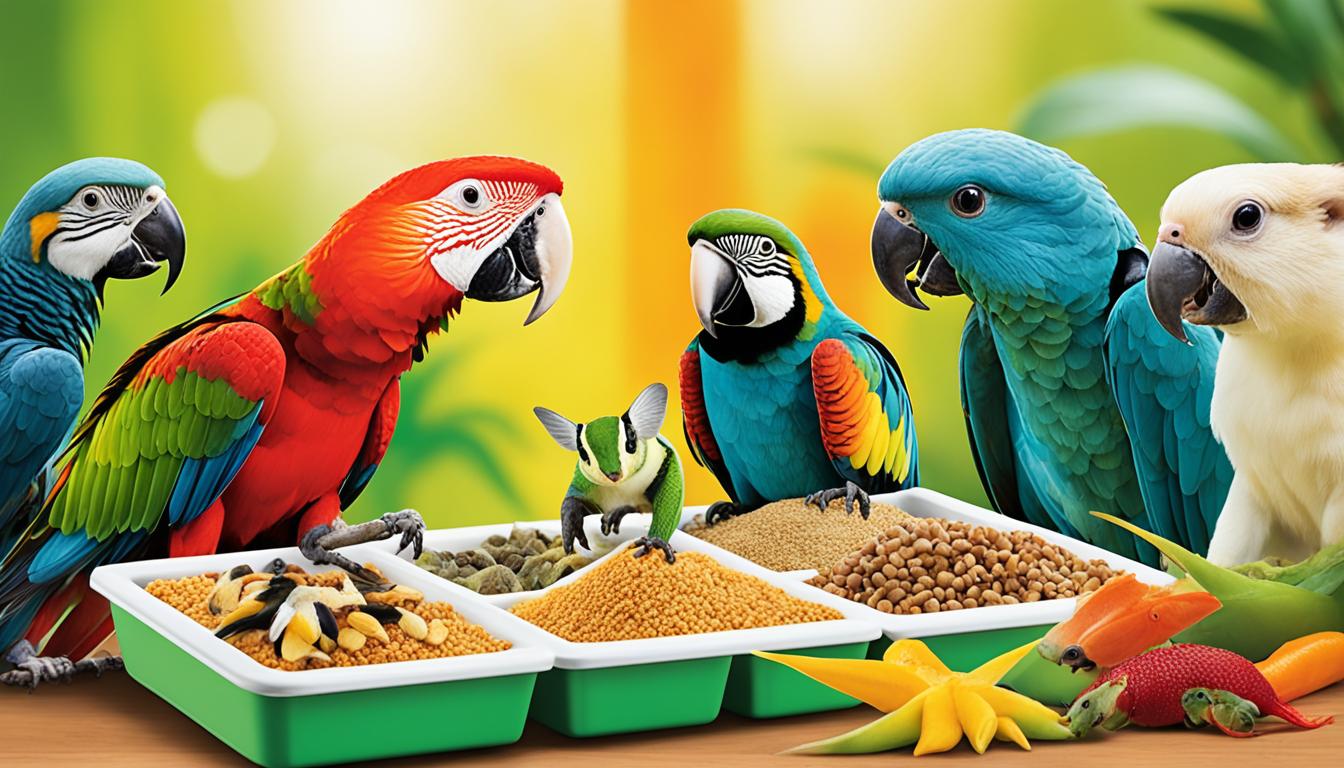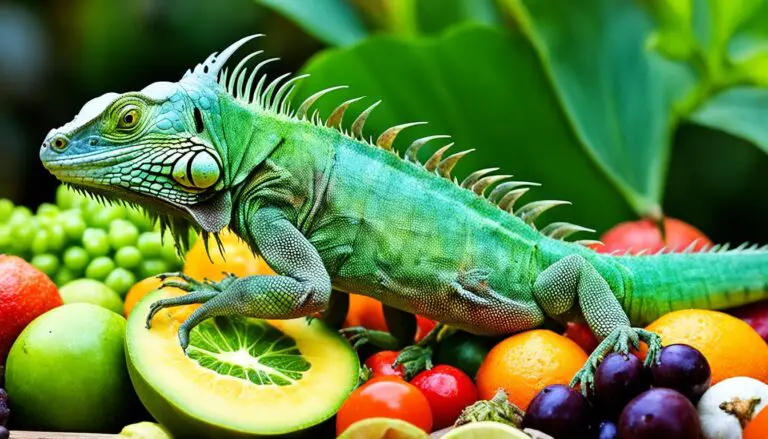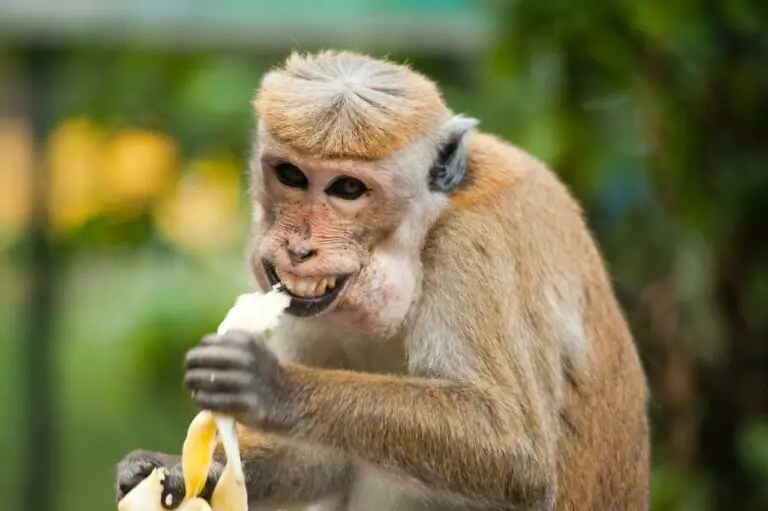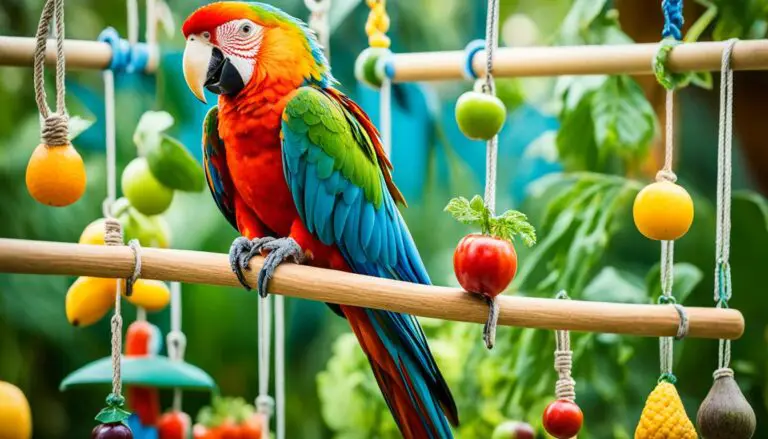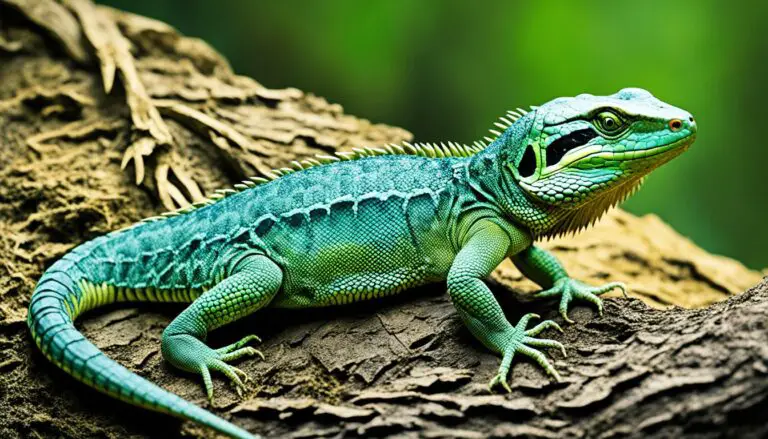Feeding Strategies for Picky Exotic Pets
Did you know some exotic pets are picky eaters? This can be a big challenge for their owners. It’s important to find the right feeding habits for pets like bearded dragons, sugar gliders, or frogs. This helps keep them healthy and happy.
We’ll look at different ways to deal with picky exotic pets here. We’ll cover how to work with their food likes and avoid food they don’t like. This will give you useful tips to make feeding time better for you and your pet.
Key Takeaways:
- Consult with your vet if your exotic pet’s appetite changes, as it could signal an underlying medical issue.
- Work with what your pet likes by experimenting with different food options, flavors, and textures.
- Watch for food aversions and avoid reinforcing picky behavior by offering a variety of foods in different dishes.
- Create a calm mealtime environment by reducing stress and anxiety.
- Enhance your pet’s diet with appropriate taste enhancers, but be mindful of the calorie intake.
Check in With Your Vet
If your exotic pet doesn’t want to eat, talking to your vet is smart. This could be a sign something is wrong. Your vet can figure out if your pet needs more tests or special care. Make sure to tell your vet about any meds, supplements, or food likes that might affect your pet’s eating.
Exotic pets need special diets, depending on their type and needs. Your vet can tell you exactly what food and how much your pet should eat. They will make a diet plan just for your pet.
When you talk to your vet, make sure to say everything you’ve noticed about your pet’s eating. Record any changes, like eating less or liking only certain foods. The more details you give, the better your vet can help.
Why Consult with Your Vet?
“Your vet knows best about your exotic pet’s diet. They’re the experts who can recommend the right food. This is crucial for keeping your pet healthy, especially if they’re not eating well or have health issues.”
Your vet’s recommendations for your exotic pet’s diet are key. They might suggest special foods that meet your pet’s exact needs. They also help with how much to feed and when.
Keep talking to your vet to make sure your exotic pet is getting the best food. Regular visits and diet talks can prevent health problems. Your vet is your partner in giving your pet a good diet.
The Role of the Veterinarian
Your vet is very important for your exotic pet’s health. They can:
- Check for health issues that affect eating
- Suggest the best food for your pet
- Change the diet as your pet’s needs change
- Recommend supplements to make their diet better
Working with your vet helps you give the best care to your exotic pet. You and your vet can solve any food issues and make a plan for your pet’s health.

Work With What Your Pet Likes
Feeding your exotic pet right is key. They, like us, have their own food tastes. Knowing what they love ensures they eat well and enjoy it too.
Some might stick to what they know, while others crave new tastes. Try different foods to see what they prefer. This keeps them happy and healthy.
Exploring Food Options
Giving your unique pet a variety can open up their food world. From insects to special pet food, there are many choices. Fruits and veggies add essential nutrients to their diet.
Watch how they react to different foods. This lets you know what they really enjoy. Then, you can focus on their favorites.
Pro Tip: Try keeping a food diary. It helps keep track of what they like and don’t like.
Providing Variety and Enrichment
Variety is good for exotic pets, just like us. Changing their food up keeps their diet balanced and interesting. Try mixing different flavors and textures.
Make mealtime fun with food toys or hidden treats. This adds a fun element to eating.
Using Taste Enhancers
Is your exotic pet still picky? Taste enhancers might help. They can make food tastier. But, always check with a vet first.
A little chicken broth or cheese can spice up meals. It makes their food more enjoyable without sacrificing health.
Being patient and trying new things is the key to feeding exotic pets. Work with their tastes, add variety, and maybe a touch of extra flavor. This way, your pet will get a diet that’s both balanced and fun.

Watch For Food Aversions
Just like people, exotic animals can develop a dislike for certain foods. They might link a type of food to feeling sick. So, keeping an eye on what your exotic pet eats is crucial.
One way to avoid food aversions is by mixing up your pet’s meals. Try using new dishes each time. This stops smells or memories of old foods from putting your pet off their meal. Using disposable dishes means you can always start fresh.

Making feeding time fun and stress-free can also work wonders. A quiet, serene environment can encourage your pet to eat without worry. Plus, offering a range of foods ensures they get a balanced diet while enjoying their meals.
Keeping it Calm
It’s key to keep your exotic pet’s mealtime calm. You might worry about what they eat but stay calm yourself. If you get upset, they might not want to eat. Keep mealtime fun to avoid picky eating.
Use a timed feeder to lower stress. This will give your pet meals at the same time each day. It makes their routine regular, helping them feel more at ease.
Or, let your pet eat in a quiet, separate area. This will help them concentrate on their food. A peaceful place could also stop anything from bothering them during meals.
Be patient and keep up with a feeding routine for picky eaters. Don’t change their food or timing suddenly. This will help them trust their meals and eat better over time.
Owner Testimonial:
“I was always anxious when my exotic pet didn’t eat. It made eating stressful for both of us. Then, I started using a timed automatic feeder. It changed everything. Now, they know exactly when to eat and do so calmly. This has really made a difference!”

| Benefits of Creating a Calm Mealtime Environment: |
|---|
| Reduces stress: A calm environment minimizes potential stressors that may affect your pet’s appetite |
| Increases comfort: Timed automatic feeders provide stability, making your pet more comfortable during mealtime |
| Establishes routine: Consistency in feeding schedules helps your pet feel secure and establishes healthier eating habits |
Enhancing the Diet
Adding taste enhancers can help your exotic pet eat more. But, you should be careful not to give them too much. It’s best not to go over 10% of their daily calories with these flavors.
Here are some tasty things that can make your pet more interested in their food:
- Chopped chicken breast: It’s full of protein, making it a tasty, healthy choice.
- Homemade chicken broth: A little bit of this can make meals more enjoyable for your pet.
- Low-fat cottage cheese: It tastes good and is a fine source of protein and calcium.
- Honey or maple syrup: Use these as sweeteners sparingly, but avoid them for cats as they don’t taste sweet.
It’s best to mix these enhancers in early so your pet doesn’t reject the food. This technique might make meals more likely to be eaten and enjoyed by your pet.
Still, a balanced diet is key. Ensure your pet gets what it needs by talking with a vet or specialist in exotic pets. Remember, each pet has different tastes. Knowing what they like can keep them healthy and happy.
Don’t Over-react
Feeding picky exotic animals right is key, but not by over-reacting. It might seem right to change their food quickly or use treats. Yet, this could make matters worse over time.
It’s better to keep a regular feeding schedule and give food for a set period. This helps create a routine. It also makes your pet eat when it should, cutting down on picky eating habits.
If your pet doesn’t eat all their food, take it away before their next meal. This stops the food from going bad. Also, it lets you serve up fresh meals that are still exciting.
Play to Your Pet’s Tastes
Knowing what your exotic pet likes to eat and how they eat is vital for their health. Each type of pet needs a specific kind of food. To pick the best food for your pet, do your homework or get advice from a vet that knows about exotic pets.
Species-specific Dietary Preferences
Each type of exotic pet has its own favorite foods. This comes from where they live, how they act, and their bodies. Let’s look at a few examples:
- Frogs: Frogs need lots of protein. They eat bugs, tiny animals, and sometimes tiny fish.
- Bearded Dragons: Bearded dragons eat both plants and bugs. They need greens, fruits, veggies, and bugs like crickets or mealworms.
- Sugar Gliders: Sugar gliders eat insects and foods like nectar and tree sap. They also need a lot of protein, which can come from bugs or special sugar glider food.
Knowing what your pet likes to eat lets you give them the right food.
Importance of a Balanced Diet
It’s important to give your pet food they love but also a balanced diet. The right mix of food keeps them healthy. Plant-eating pets need lots of different fruits and veggies. Meat-eating pets need quality meats.
A vet who knows exotic pets can help figure out the best food mix. They can suggest good brands that fit your pet’s diet.
Image-Based Representation of Exotic Pet Dietary Preferences
Understanding your exotic pet’s food needs is key. With the right diet, they will be happy and healthy. This way, your exotic pet will do well in your care.
Conclusion
Feeding picky exotic pets needs a special touch. Talk to your vet to make sure your pet gets the right food. Keep an eye out for what they don’t like.
Make mealtime a calm time. Use things to make the food taste better and look more interesting. Always be patient and try new foods slowly, over time.
Following this advice helps keep your exotic pet healthy and happy. So, just be steady and caring in how you feed them.
FAQ
Why is it important to consult with a vet if my exotic pet is being picky or selective with their food?
How can I determine what type of food my picky exotic pet likes best?
How can I prevent food aversions in my picky exotic pet?
How can I create a calm mealtime environment for my picky exotic pet?
How can I enhance my picky exotic pet’s diet to entice them to eat?
What should I do if my picky exotic pet refuses their food?
How can I choose the right food options for my exotic pet?
What are some feeding strategies for picky or selective exotic pets?
Source Links
- https://vetnutrition.tufts.edu/2017/03/how-do-i-get-my-picky-pet-to-eat/
- https://jamjamexotic.com/blogs/news/pet-feeding-benefits-for-exotic-animals
- https://arlingtonanimalclinic.net/blog/picky-pooches-and-finicky-felines/
Peter Stones is the founder of Exotic Pets Place, the leading online resource for exotic pet care information.
With over 10 years of hands-on exotic pet ownership experience, he is deeply passionate about sharing his expertise to help others properly care for their unusual pets.
When he's not writing extensively researched articles or connecting with fellow exotic pet enthusiasts worldwide, you can find Peter at home tending to his own beloved menagerie of exotic animals.

